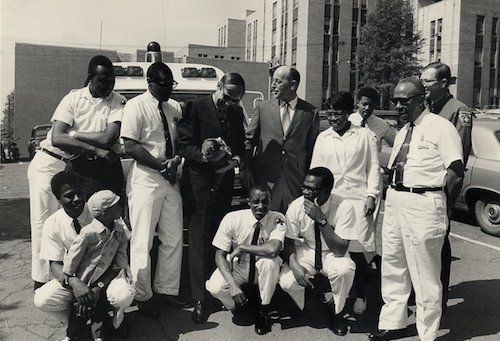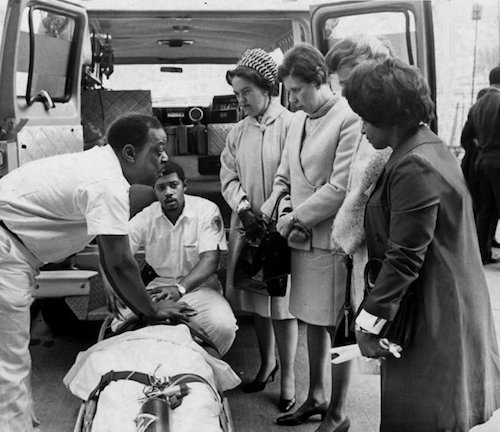 Crazy, right? Yet, here's an example that you're benefiting from right now.
Crazy, right? Yet, here's an example that you're benefiting from right now.
Until the 70s, ambulance services were generally run by local police and fire departments. There was no law requiring medical training beyond basic first-aid and in many cases the assignment of ambulance duty was used as a form of punishment.
As you can imagine, throwing people with medical emergencies into the back of a paddy wagon produced less than spectacular health outcomes.
Now imagine how much worse it became when disgruntled white police officers were demoted to ambulance duty in black neighborhoods.
The response was so problematic (or non-existent) that in 1967, leaders in one of Pittsburgh’s black communities, the Hill District, created Freedom House Ambulance Services and approached Peter Safar, a doctor at the University of Pittsburgh, who a few years earlier had lost his 12-year-old daughter to an acute asthma crisis.
With a shared purpose of improving emergency medical response, Safar trained 25 black men from that neglected community––many of whom did not have a high school diploma––as emergency medical technicians, skilled in this new thing called CPR.

With two donated police vehicles, Freedom House Ambulance Services began to save lives at such a rate, that they became the gold standard for emergency response training in the US and the model for EMTs we now take for granted.
Freedom House paramedics were so dynamic in their ability to respond to the critically ill that the police often called them for high acuity cases in white neighborhoods.
Despite the success of FHAS, police and fire departments resisted retraining, so the city reallocated funds to create a separate EMT service. (A new mayor cut funding to Freedom House in 1975 and seized their assets, but that's another story).
When people think defunding the police will lead to anarchy, they’re not understanding that change rarely happens from within, and that resources reallocated to community-based services can not only improve neglected neighborhoods, but create innovations that help us all.
 newest »
newest »
 newest »
newest »
 Imagine if more money went to mental health services....
Imagine if more money went to mental health services....

 Crazy, right? Yet, here's an example that you're benefiting from right now.
Crazy, right? Yet, here's an example that you're benefiting from right now.



